Spring has been kind of a clunker so far, to be honest. The caveat is that more than most seasons the schedule seems to be back-loaded – almost none of the shows in my top two expectations categories have premiered yet. Still, psychology is what it is, and that puts a certain amount of pressure on a series like Deaimon to start the tide turning. It’s not as though I even had huge expectations for this show either, but it is at least transparently less trivial than most of what’s come before it. Thematically, anyway.
The verdict is a mixed bag for me. It’s a classic glass half full/half empty situation – I can pick out a lot to feel positive about, but ultimately I thought a lot about this premiere was pretty pedestrian. I have a soft spot for any Kyoto-based anime, for obvious reasons. And Deaimon, after starting out at Kyoto Station, heads for my neighborhood – just across the river from my house, maybe 20 minutes walk tops. It’s set in the area north of the old Imperial Palace, between the Kamo River and Imadegawa subway station. It’s not a tourist hot-spot but a pleasant mix mostly of modest houses and local businesses.
One of those local businesses is Ryokushou, a wagashi shop of the type that tends to stay in Kyoto families for generations (this neighborhood is full of such businesses). The son, Nagomu (Shimazaki Nobunaga), was close to the grandfather and seemingly clashed with the father (Koyama Rikiya). After high school he fled to Tokyo, where he spent ten years trying to make it in the music business (and basically failing). After a letter from his mother (Yoshida Miho) telling him his father was ill (with hemorrhoids, as it turns out) Nagomu rushes home – having a run-at the station with a young girl who mistakes him for her father.
That girl (because in anime there’s no such thing as coincidence) turns out to be Yukihira Itsuka (Yuuki Kozue). She’s been abandoned by her parents (that theme again) and left with the “nice man at the sweets shop” to take care of. Naturally Nagomu’s parents do just that, despite the girl having no prior connection to them at all. In point of fact the father, Heigo, appoints her as heir in place of the son who ran off to hated Tokyo. The twist here, I suppose, is that Nagomu doesn’t hate Japanese sweets – in fact, he loves them too much. He can’t bear to see them walk out the door with customers because he develops such an emotional attachment to them.
In theory, I think this is a premise with a fair amount of potential to it. And in practice a lot of this works quite well. But I must say that – in a way that Kotarou wa Hitorigurashi avoids, at least for me, despite being more overtly poignant – Deaimon borders on the saccharine at times. It has more of a push-button quality to it in the sense of being much more conventional to anime, with all that implies. And Itsuka is a lot to take – she’s a bit precious and that’s a challenge for me. I have no idea how old Yuuki-san is (I’m guessing around 20 based on her bio and resume) but I really think this is a case where casting an actual child would have made a big difference. The performance is pretty mannered in the way adults playing little girls in anime all too often are.
For all that, though, this was still a welcome change from the mediocre (or worse) sports anime and genre plonk that’s constituted most of this season thus far. A lot of this is going to come down to how much traction the relationship between the man-child and the actual child develops. As for the supporting cast it’s too early to say – I find the father pretty annoying but hopefully he’ll tone it down a bit once his son has been home for a while. This whole “healing” sub-genre which Deaimon may be part of is a tricky alchemy to pull off – this series seems to have some of the raw ingredients but the jury is out on whether it has the skill to blend them successfully.


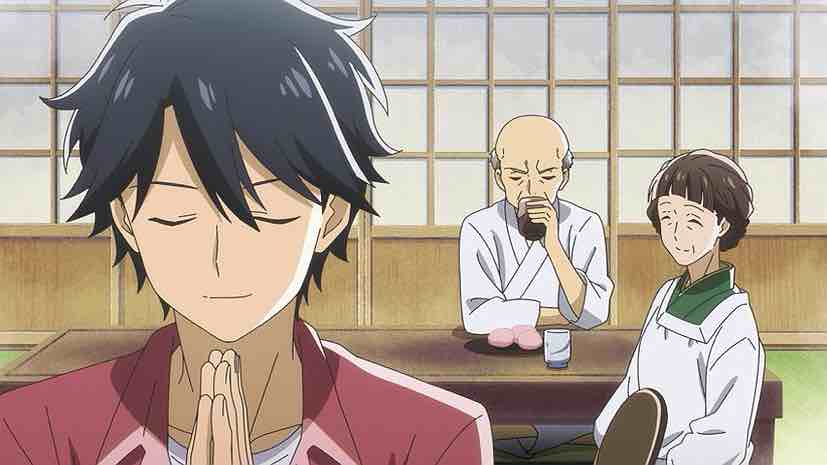
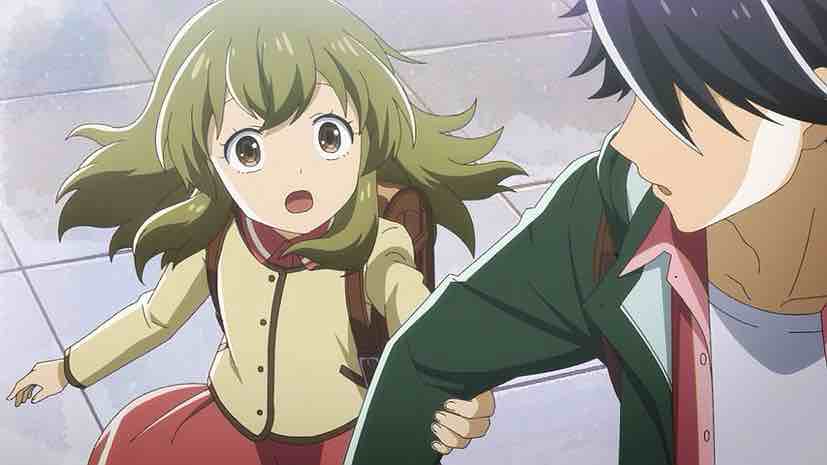
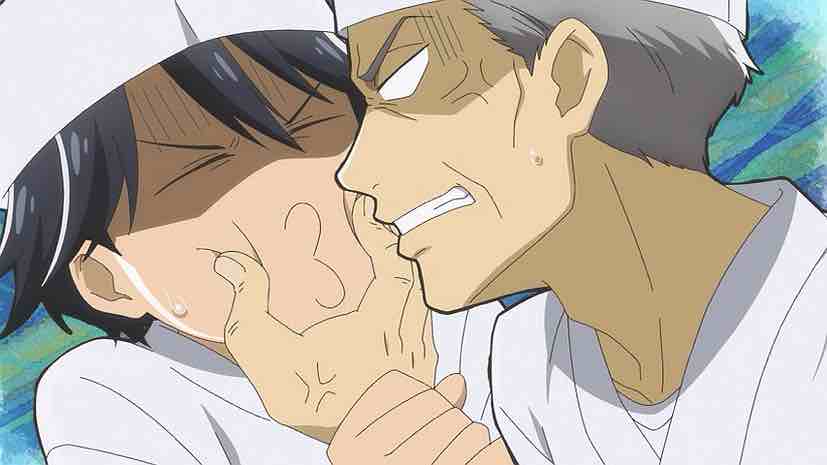
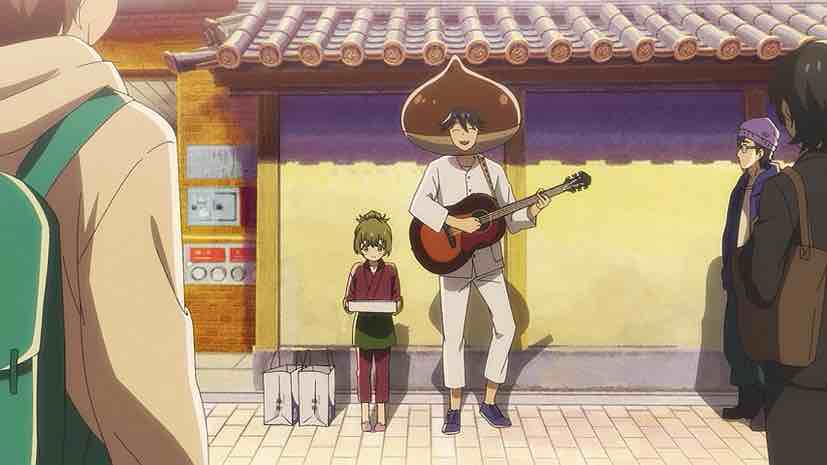
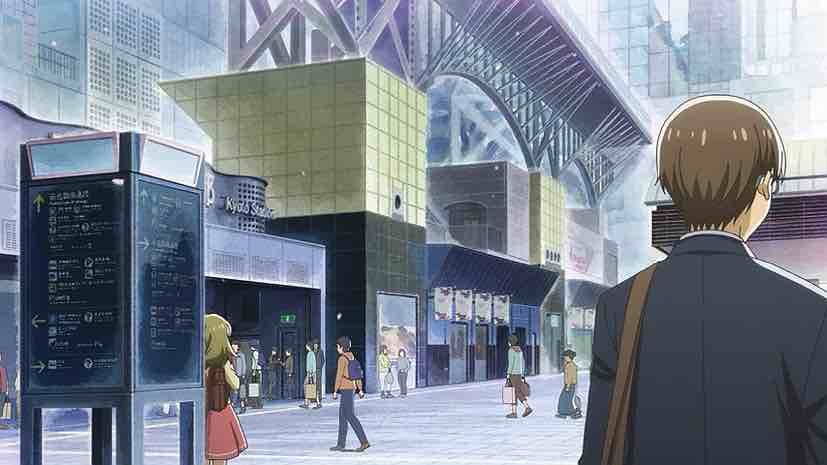
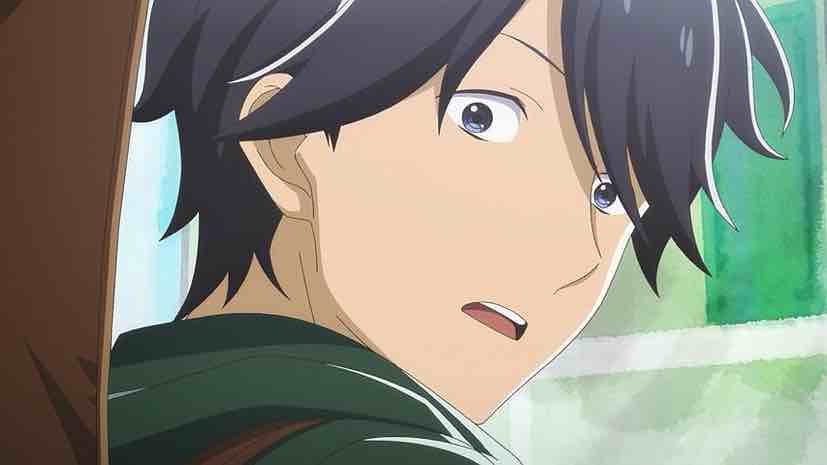

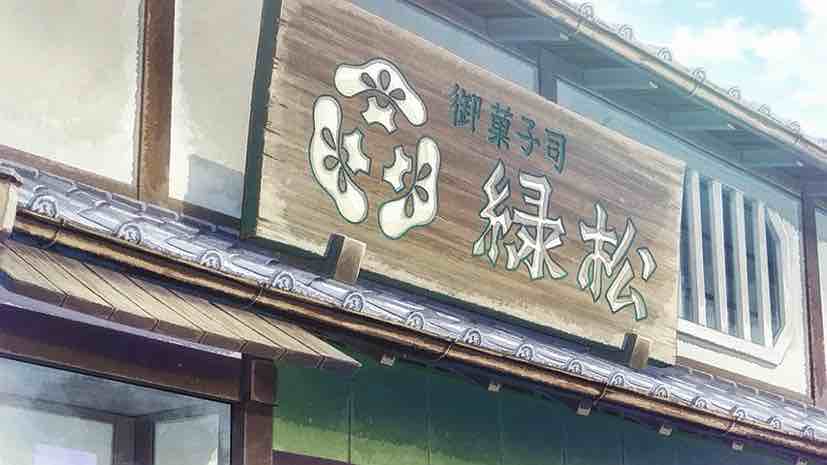
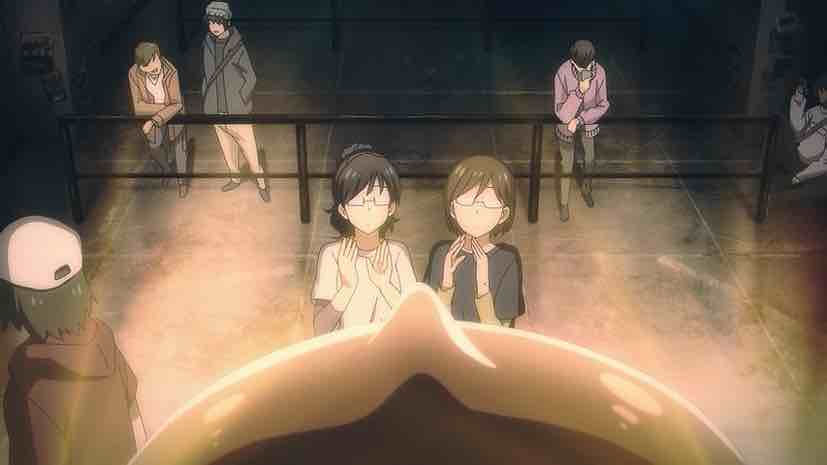
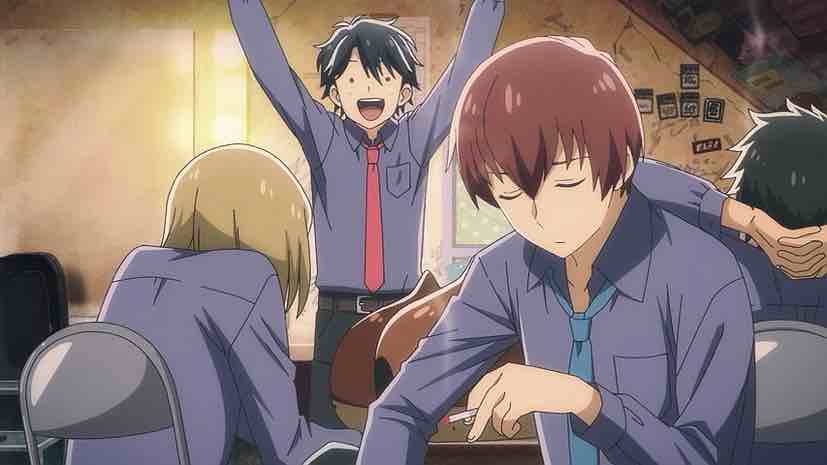
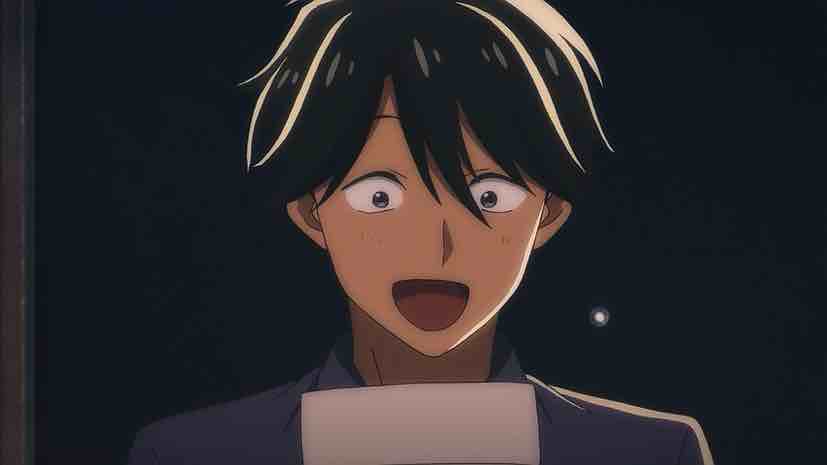
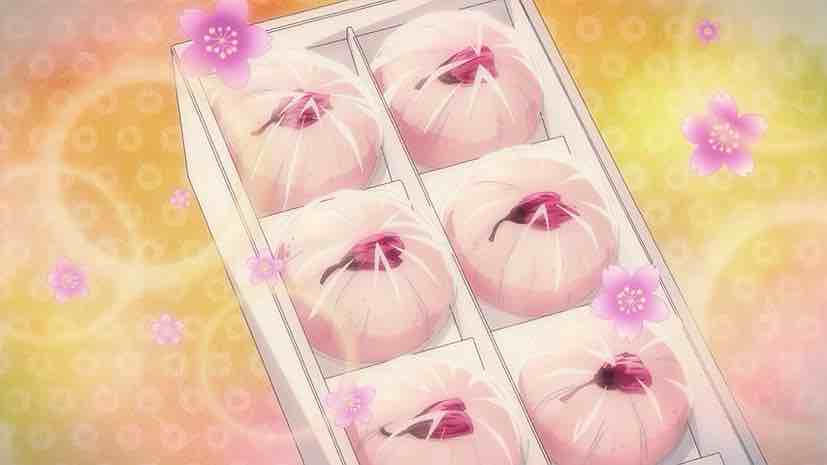
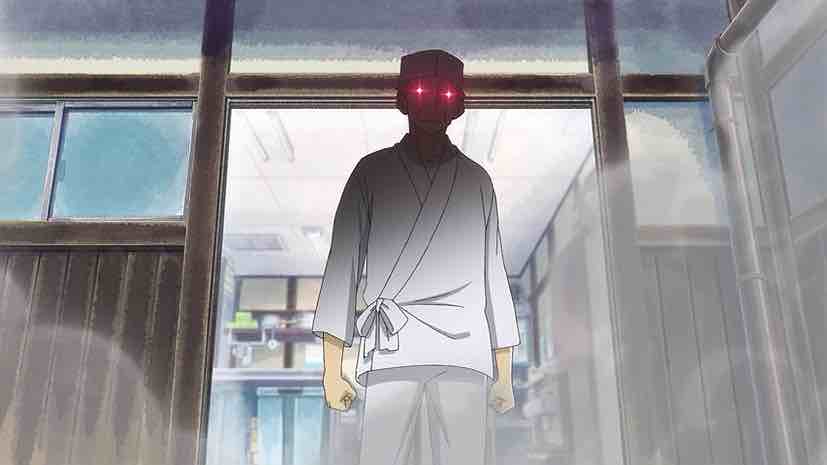
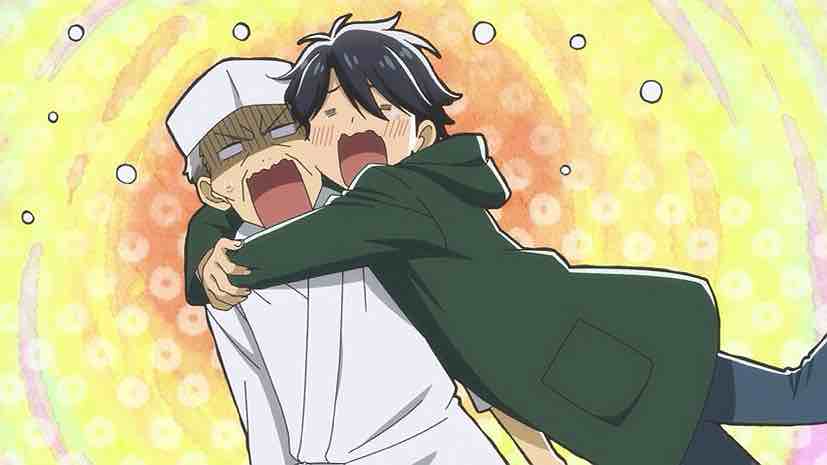

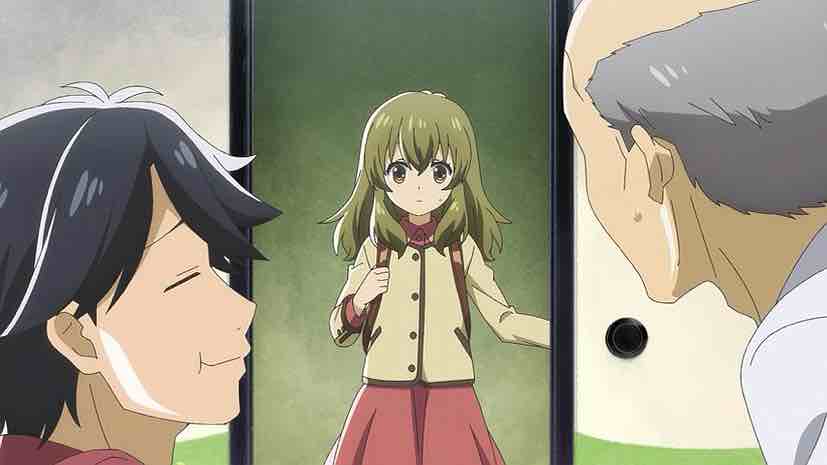
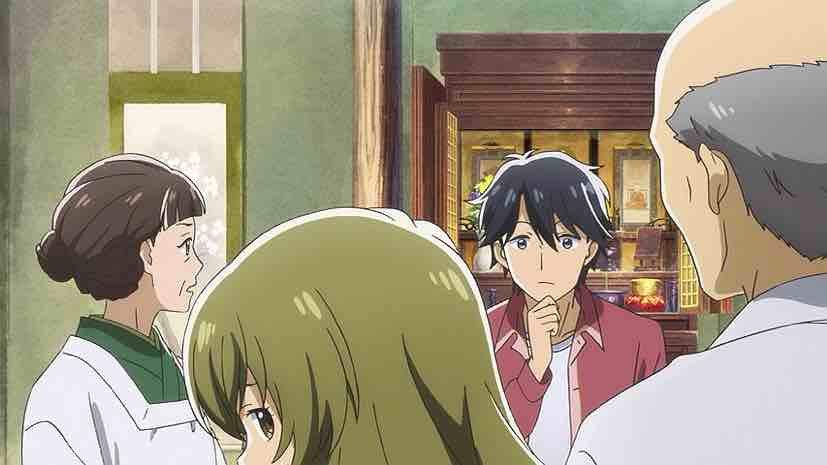
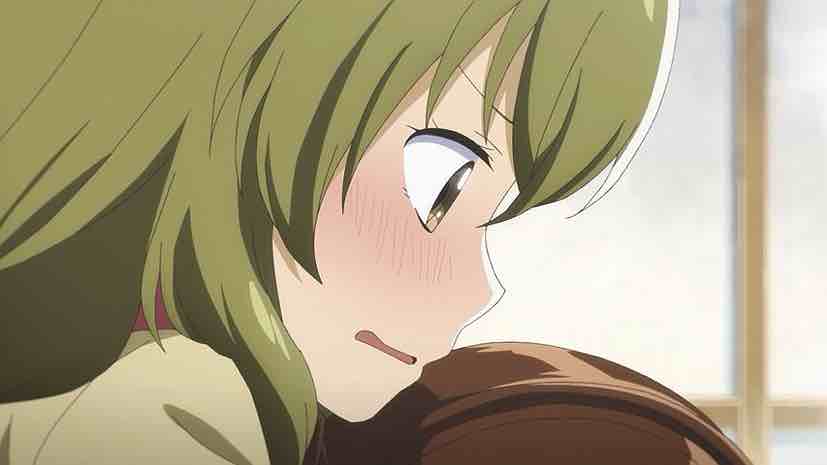
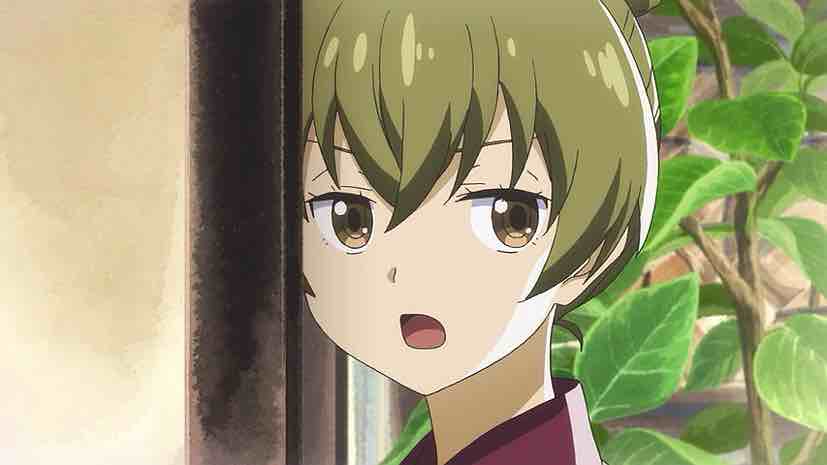
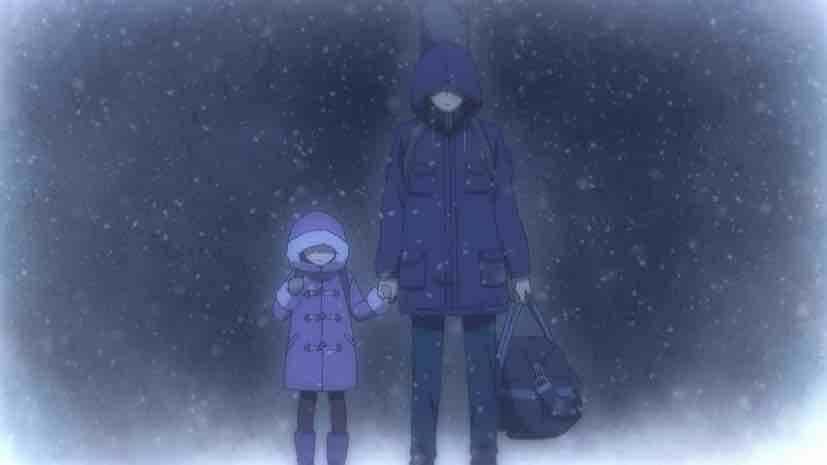
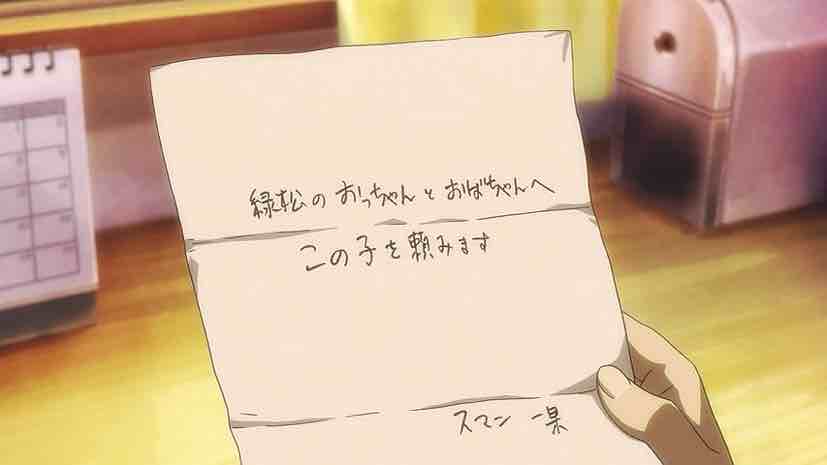
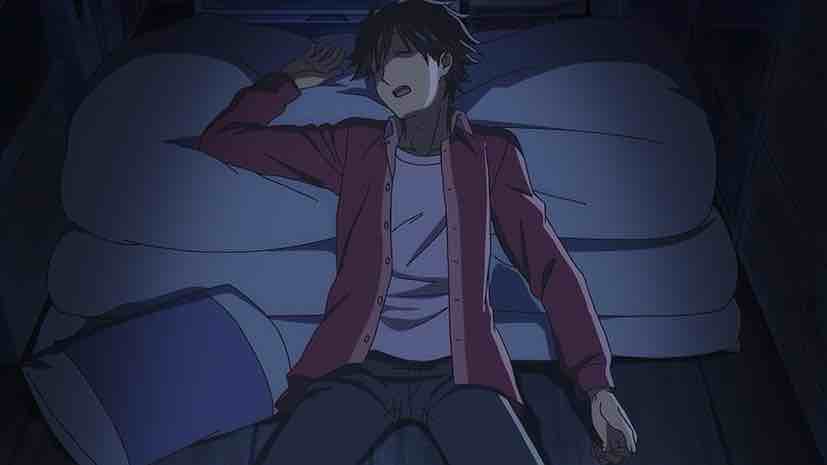
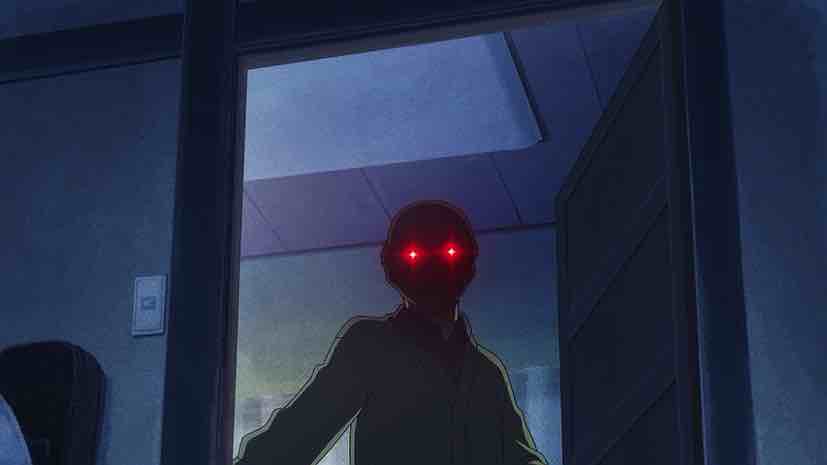
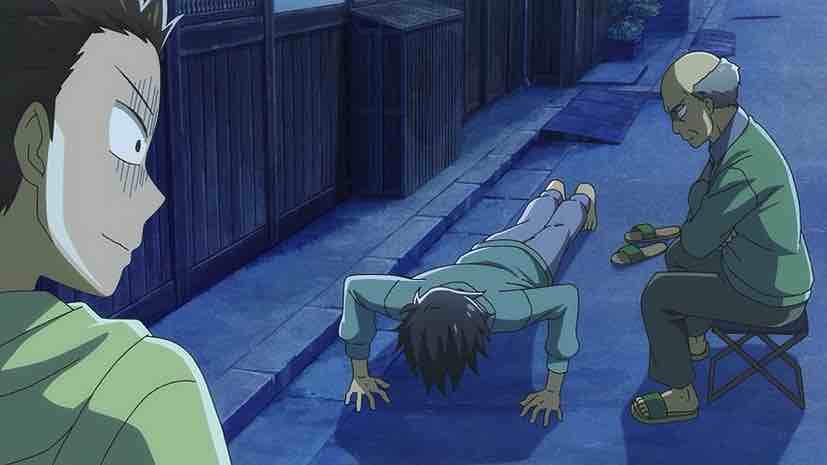
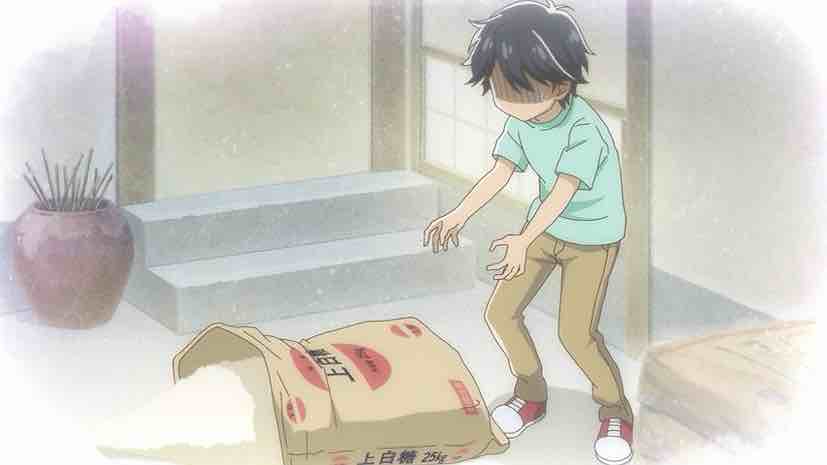
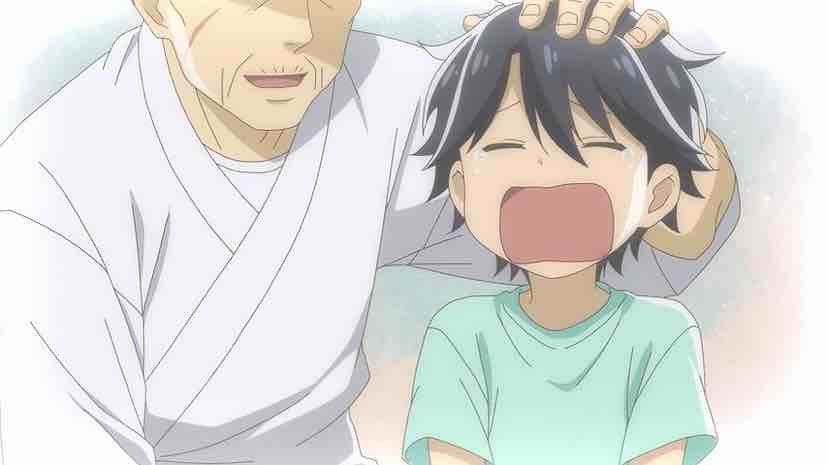
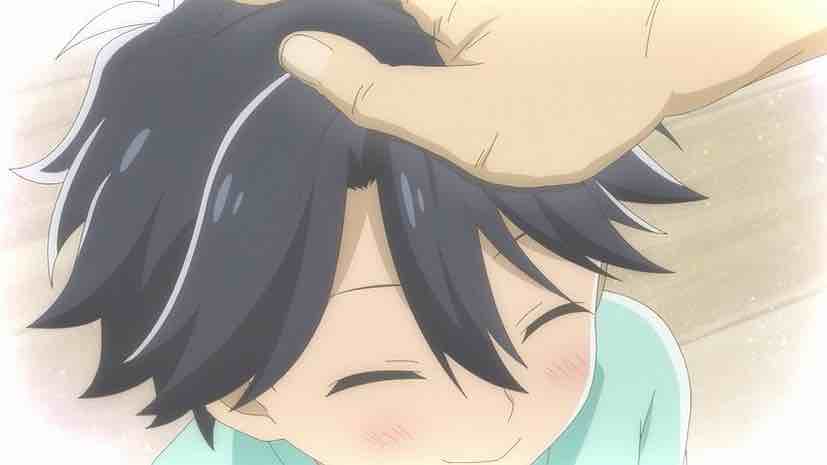
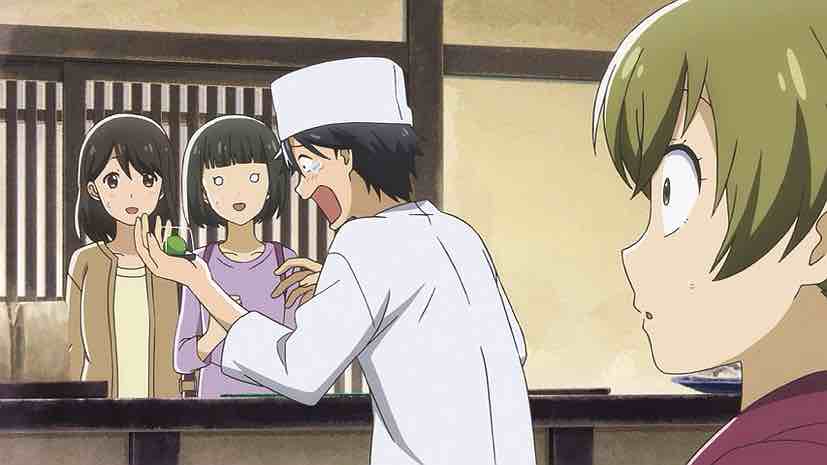
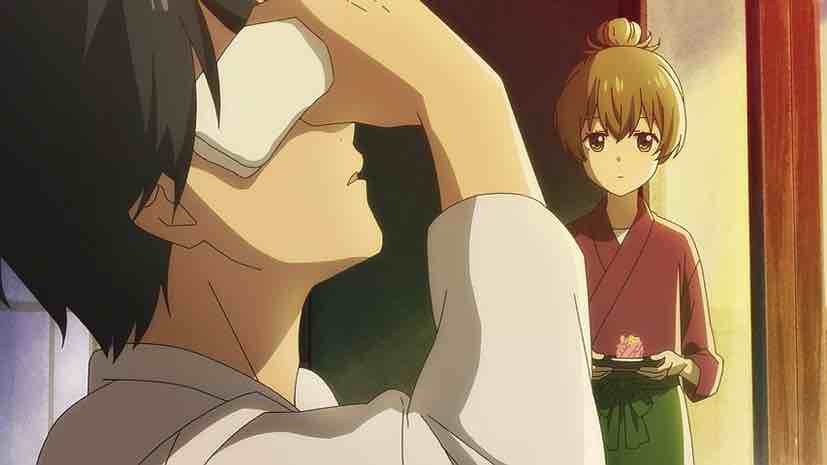
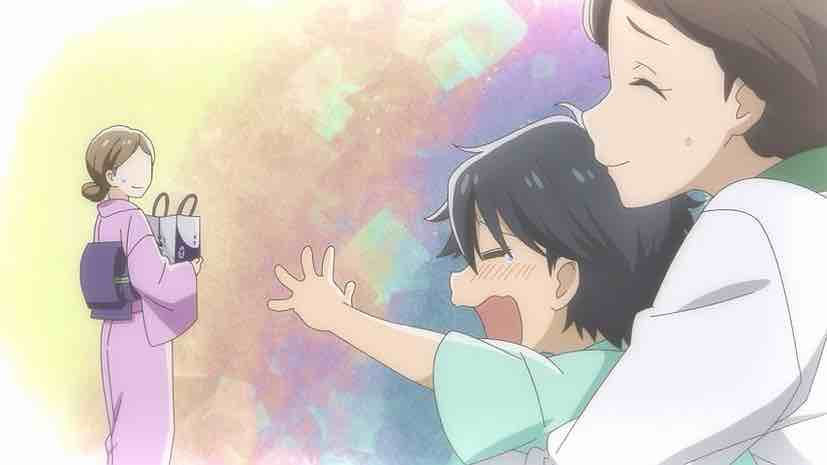
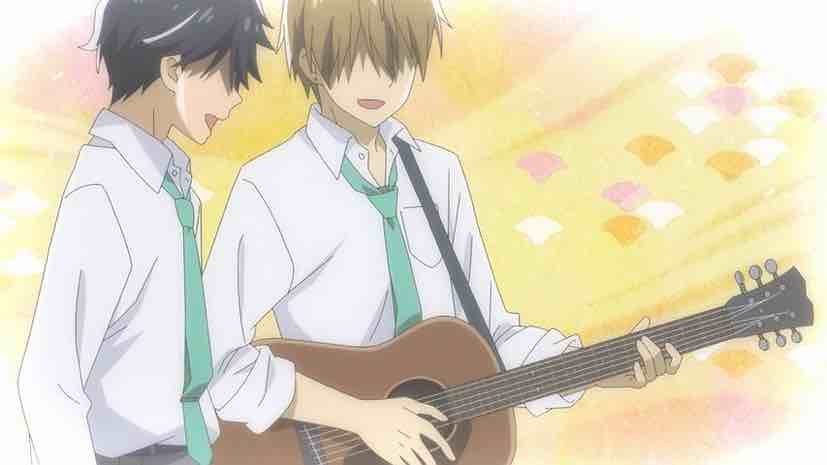
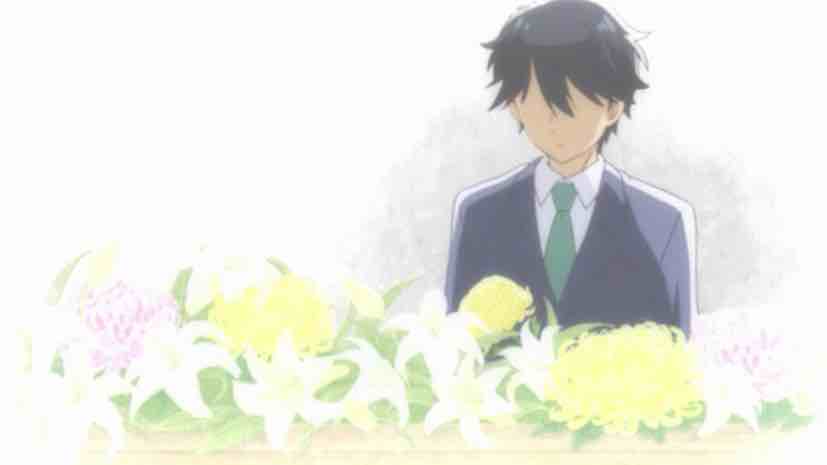
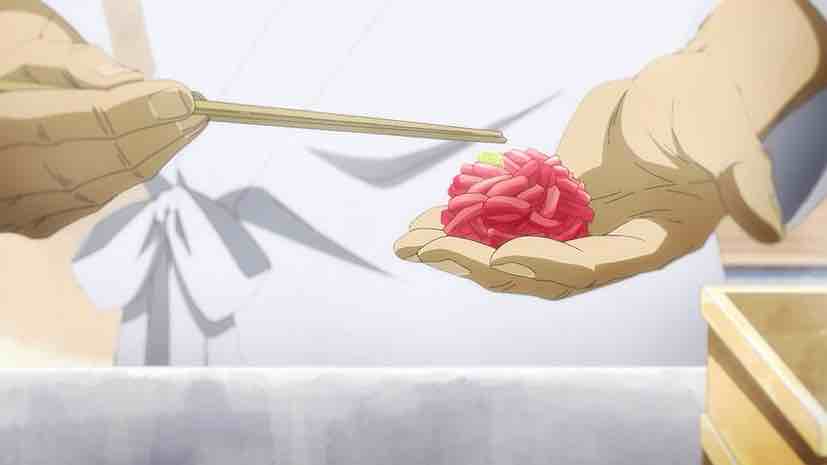
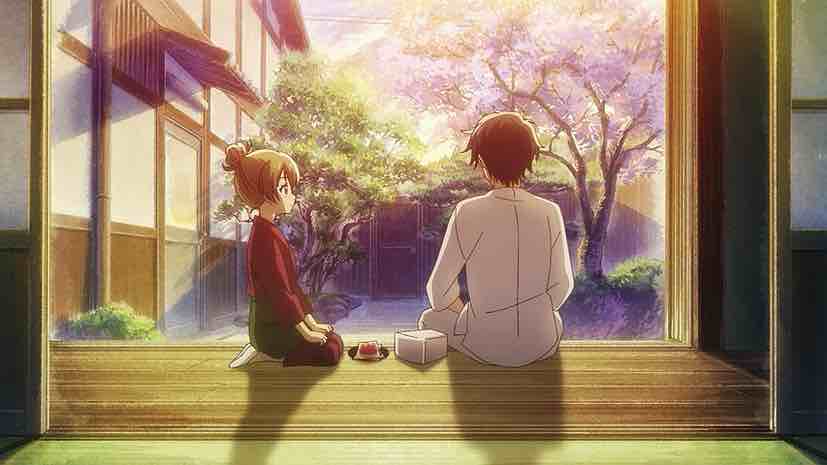
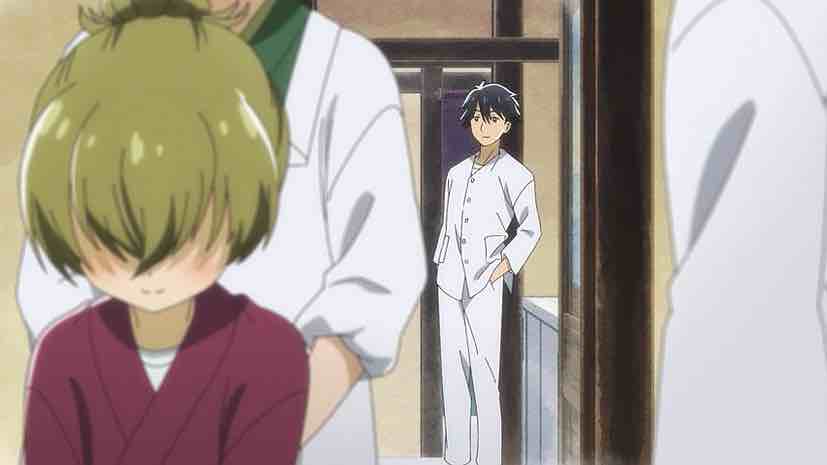
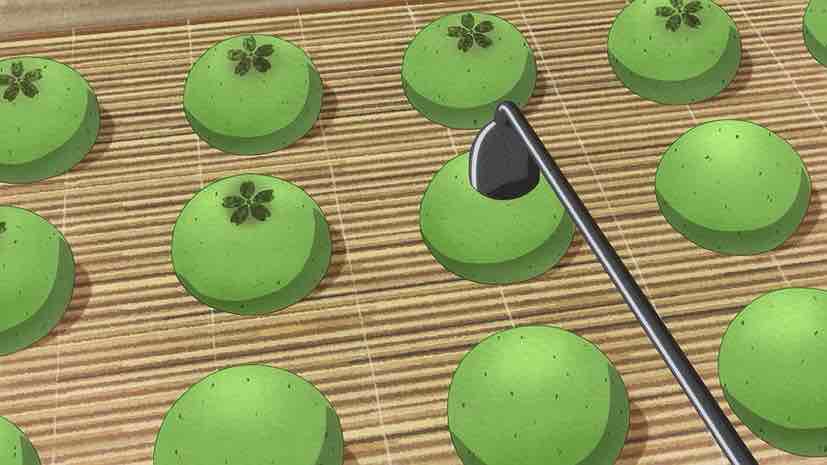

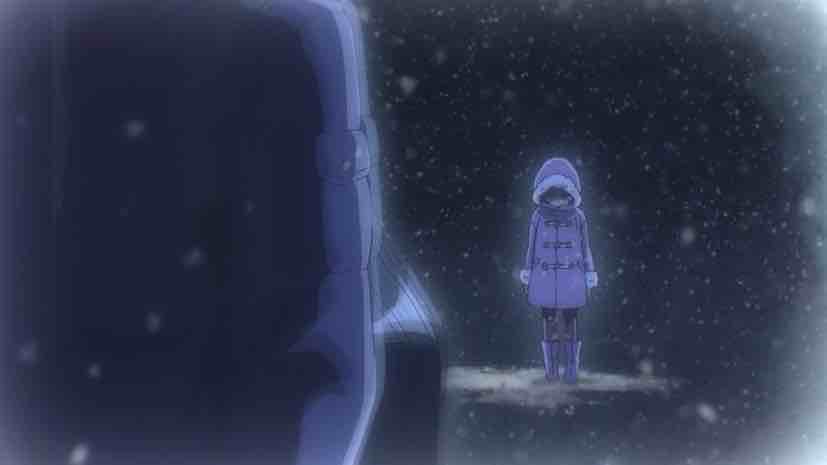
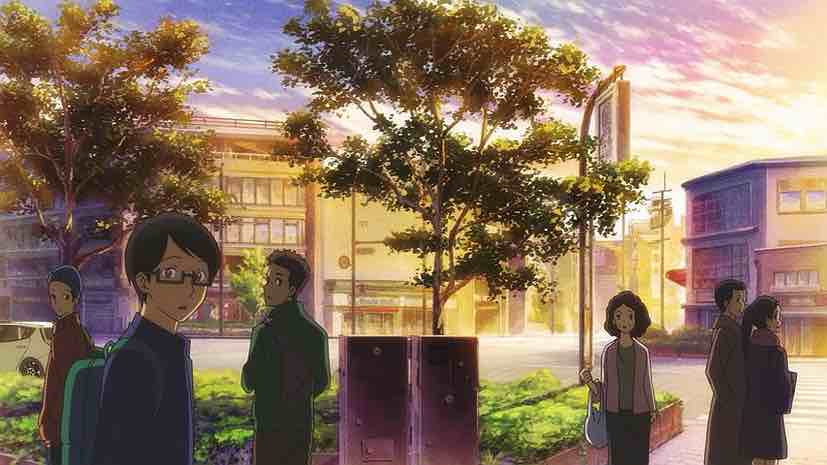
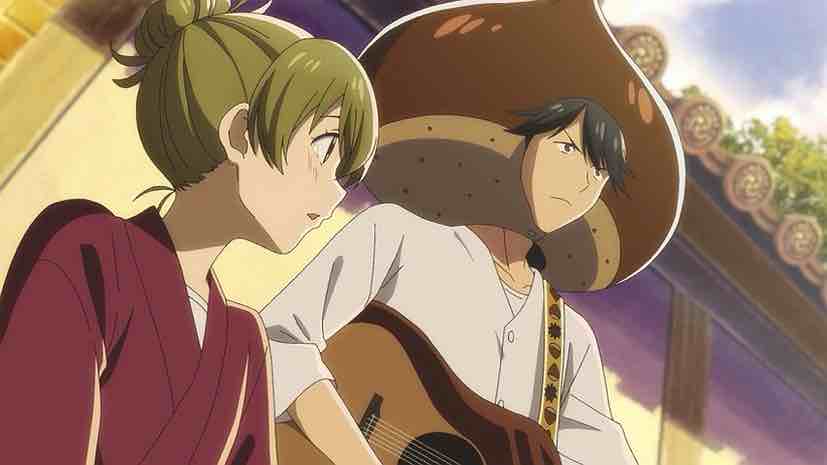
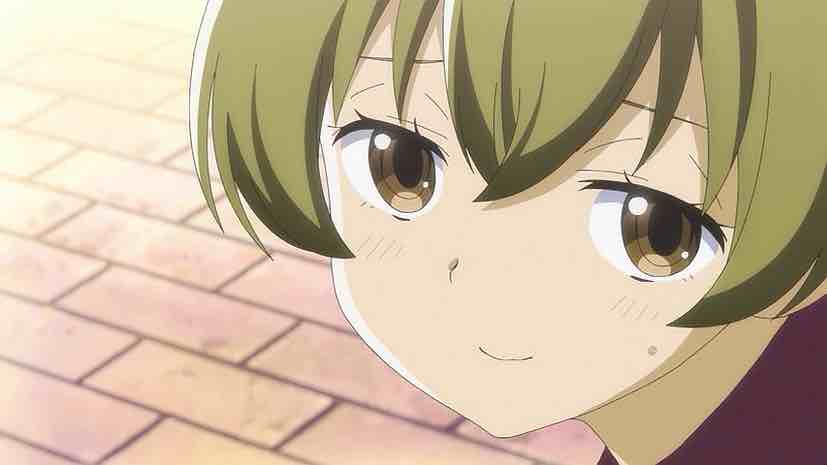
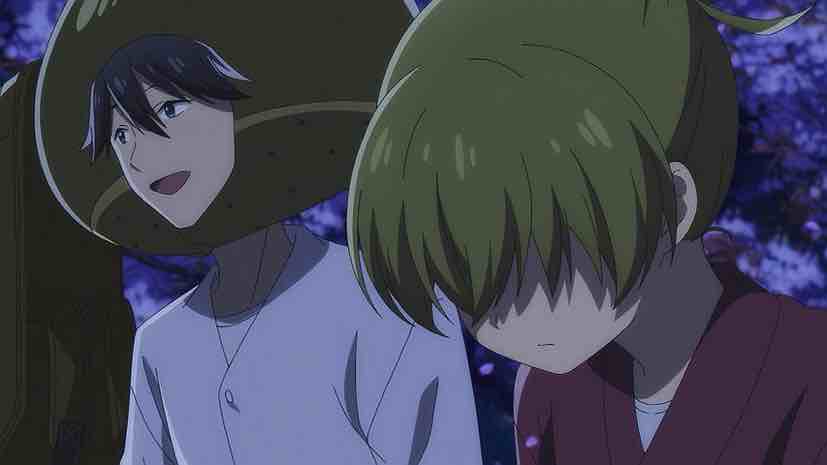

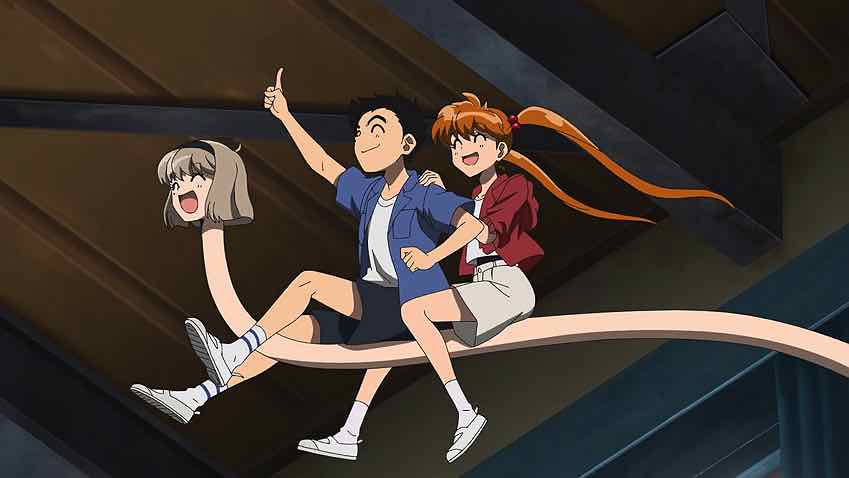
Litho
April 8, 2022 at 1:10 pmI like the manga, and will stick to it. Anime premier was alright, but offered nothing over the manga so I probably won’t continue with it, and honestly the manga pacing feels better. It served it’s bare-minimum purpose I suppose, which was to give voices to the characters for when I read the manga.
Guardian Enzo
April 8, 2022 at 2:12 pmWell, Encourage isn’t anyone you’d expect exceptional production values from, and the staff doesn’t have anyone who immediately strikes you as elite in a key role. So a by the books adaptation would always have seemed like the most likely outcome. Any Kyoto show you’re always hoping the visuals will be exceptional, but these were fine – no better or worse than that.
Simone
April 15, 2022 at 12:46 amI am not sure what Japan’s children labour laws are, but my main thought during the episode was that some ought to have been broken here. The girl isn’t just staying around and learning or helping, she seems to be 100% working there. Also the way she acts made me think a bit of Taiga from Toradora (not a compliment as far as I’m concerned).
Guardian Enzo
April 15, 2022 at 7:49 amI would imagine whether or not Itsuka has officially been adopted (I assume not) matters. It’s totally normal for kids to help out the family business in the US and I don’t think it’s any different in Japan, and I’ve almost never heard of any cases being made an example of. If she’s just an orphan living there, I guess child labor laws would apply (and I don’t know the details on those in Japan but they do have them).